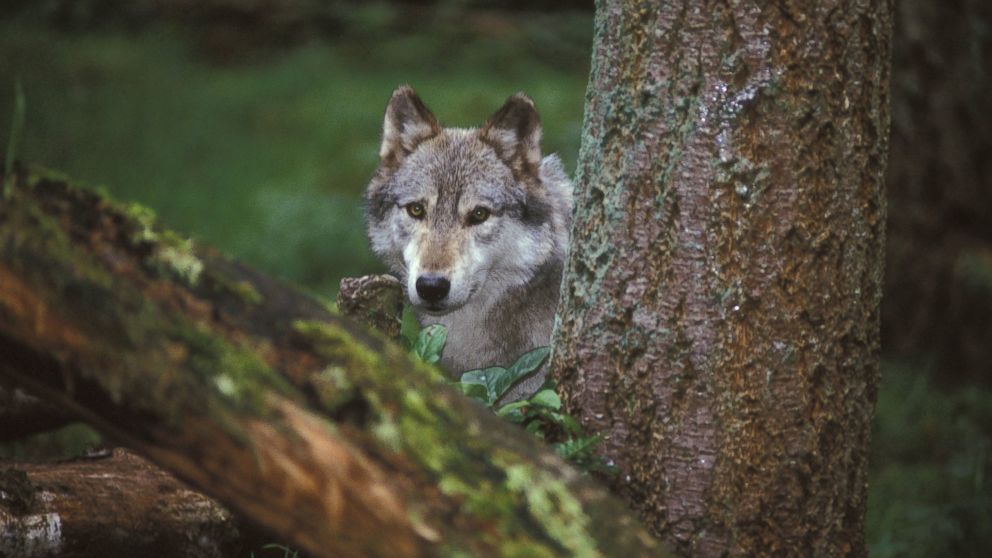Conflict between wolves and ranchers touches issues of conservationism and Native American rights
— -- A series of legislation and proposed legislation in Western states has advocates of wolf conservation concerned for the future of the animal as well as the country's respect for Native American rights, according to an advocate who spoke to ABC News.
"Wolves are our sacred animals," said Roger Dobson, founder of the non-profit religious organization Protect the Wolves, and a member of Washington state's Cowlitz Tribe. "Our creators put wolves on the planet to perform a sacred task. [These laws] encourage people to treat them like vermin."
The laws and proposed laws to which Dobson is referring include a ruling by a federal appeals court last Friday that wolves in Wyoming should be stripped of Endangered Species Act federal protections.
Gray wolves were once hunted to the brink of extinction in the lower 48 states, but they recovered under Endangered Species Act protections and reintroduction programs, according to The Associated Press.
The U.S. Fish and Wildlife Service says gray wolves now number around 5,500, including about 400 in Wyoming. Officials in Wyoming determined in 2012 that gray wolves were no longer a threatened species.
U.S. District Judge Amy Berman Jackson sided with environmental groups in 2014, ruling that a promise made by Wyoming to maintain a population above the minimum 100 wolves, including 10 breeding pairs, outside of Yellowstone National Park and the Wind River Indian Reservation was unenforceable, which led to the appeal.
Rep. Liz Cheney of Wyoming welcomed Friday's ruling, saying that the state should decide how best to handle its wolf population.
"This ruling will again put the process of managing the gray wolf back where it belongs — in Wyoming's capable hands," Cheney said.
Cheney, a Republican, has fought against the federal regulation of wolves, and has cited the rights of ranchers to protect their livestock as a reason for backing the appeal.
“It’s a bipartisan issue. We see what’s happened with the wolf population [and] we see the damage that’s being done, particularly for our ranchers,” she told KGAB radio in Wyoming earlier this year.
Wyoming Gov. Matt Mead, who is also a Republican, released a statement praising the ruling on Friday.
"I am pleased with today’s ruling. The court recognized Wyoming’s Wolf Management Plan was appropriate. We look forward to state management once the 2012 delisting rule is formally reinstated. I thank everyone who has worked so hard for the recovery and delisting of wolves. This is the right decision for wolves and Wyoming," Mead said.
Dobson and other activists see the ruling as favoring the ranchers. According to Dobson, the legislation will allow ranchers to shoot the animals, who are still in danger of disappearing, on sight.
Rebecca Riley, an attorney for the Natural Resources Defense Council, one of the plaintiffs, told the AP the court's decision was "a step backwards for wolf recovery in the West."
The Associated Press contributed to this report.




